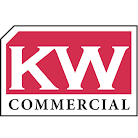Parking Requirements for Restaurant Properties: What Buyers Need to Know (San Antonio, Texas)
.png)
Introduction When evaluating a restaurant property, most buyers focus on the kitchen layout, dining space, or location. But one factor that can directly impact your business — and even determine whether your restaurant gets approved — is parking . Local governments often have strict parking requirements for restaurants, and failing to meet them could delay permits or limit your seating capacity. Here’s what you need to know about parking when buying a standalone restaurant property. 🚗 Why Parking Is So Important Parking isn’t just about customer convenience — it’s tied to zoning compliance , fire code, accessibility laws, and even your building’s maximum occupancy. If your property doesn't meet the city's parking minimums, you could face delays, reduced capacity, or expensive workarounds. 📐 Common Parking Requirements for Restaurants While parking rules vary by city, most municipalities require: A minimum number of spaces based on indoor and outdoor seating 1 sp...


